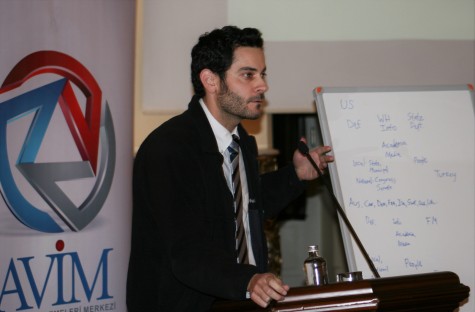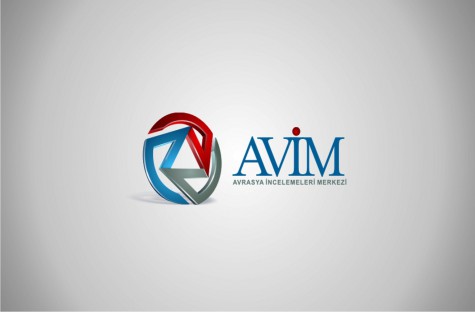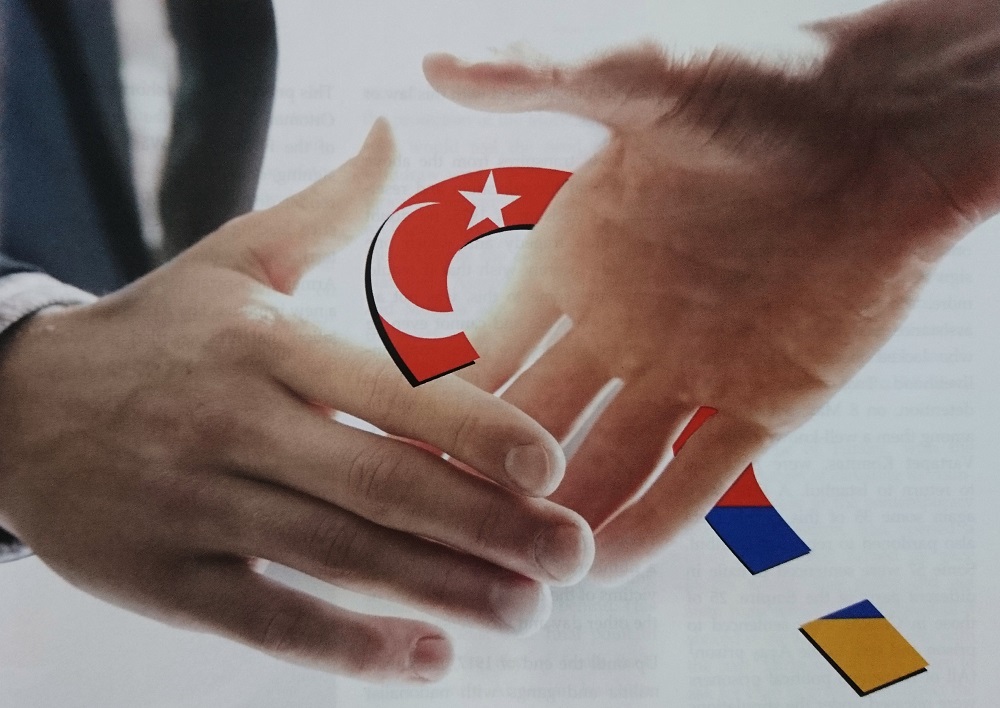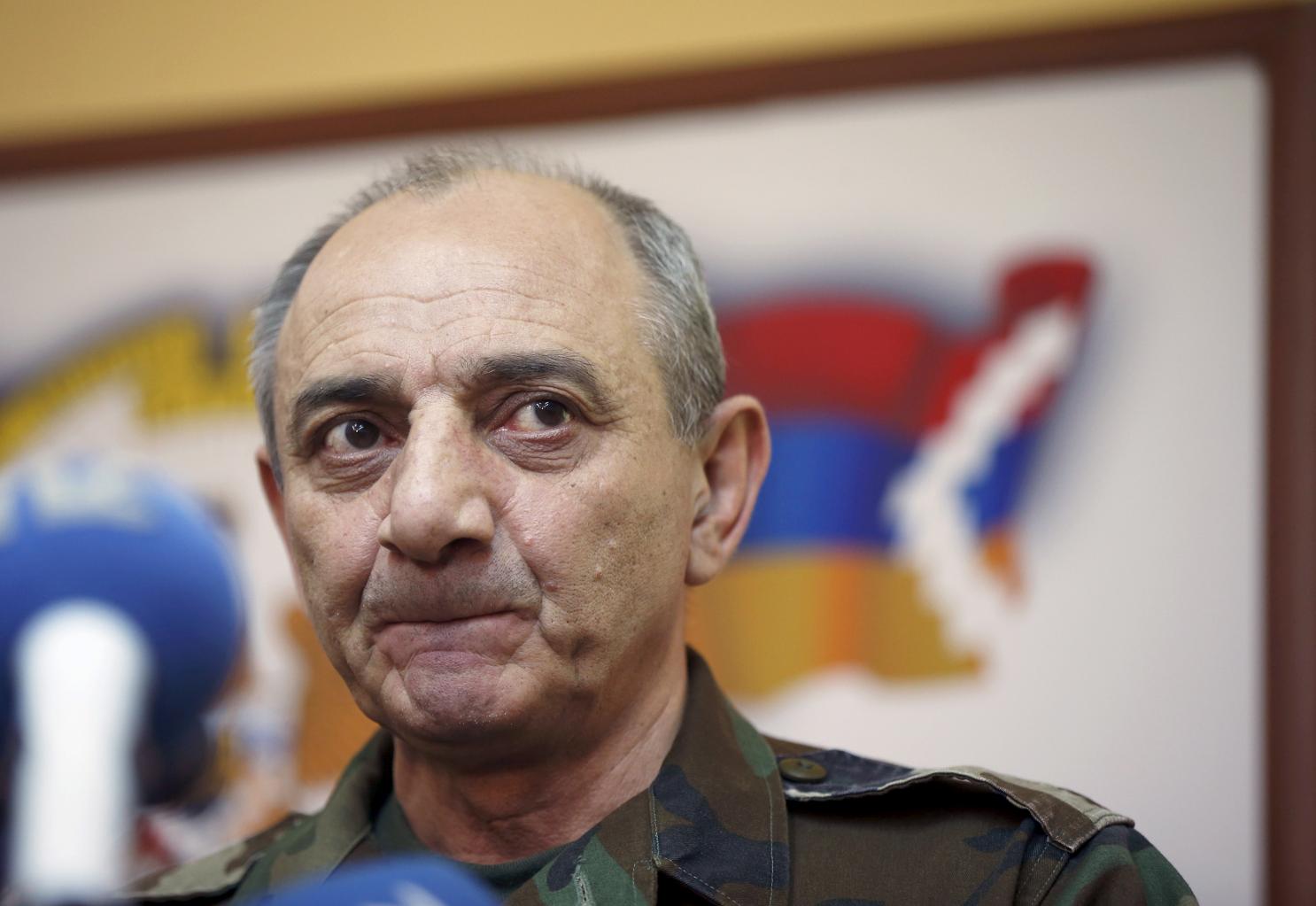Tal BUENOS
Hurriyet Daily News
24.04.2014
To accuse of denial is to assert that someone is refusing to acknowledge the truth. The accusation of denial assumes the accuser is the possessor of fact-based knowledge and the accused is devoid of empirical capacity.
The privilege to accuse others of genocide denial is usurped by presidents and directors of institutes and centers in the genocide industry who have created a web of factories worldwide that have big commanding names and dispense genocide labels. Serial genocide labelers, such as Gregory H. Stanton and Israel Charny, employ the accusation of denial to justify their main product: the genocide accusation against the Turks. Not only does it keep their factories in business, it also covers up the simple fact that neither of them have the lingual skill to read Ottoman texts or the methodological accountability to put the Armenian tragedy of World War I in context.
As the genocide industry is trying to piggyback on the overwhelming historical singularity of the Holocaust, so do its accusations of denial counterfeit the currency of the strong position against Holocaust denial. However, significantly, Holocaust denial pertains to claims against the actuality of known facts, and the scholarly discourse among experts in the field of Holocaust studies is open to legitimate debates over historical interpretations of events.
Far from denial, the right to refute is in the DNA of the academic being and it means the freedom to prove through evidence that a charge is false or that an opinion is erroneous.
If the accusation of denial involves the accuser’s false ownership of truth, then it is nothing but a scare tactic employed by bullies who wish to shut down historical inquiry. Thus, in twisted fashion, the very accusation of denial is presented by the genocide industry as “proof” of genocide.
There is a plethora of possible reasons why the genocide industry makes lists of denialists: to cement genocide studies as a legitimate academic field, to undermine American strategic ties with Turkey, to boost up international interventions and restrain the effect of libertarianism on American foreign policy, to cater to the wishes of Armenian lobby groups in the U.S., to perpetuate bigotry and racism through old notions of Islamophobia and Turcophobia; or, to sustain the common Western historiography that obsessively vilifies Turks, but lacks interest in defining the massacres perpetrated by Britain in India during the so-called Indian Mutiny in 1857.
Whatever the reasons for the accusations of denial, they certainly correspond with Turkey’s political and economic emergence as a regional power in a transcontinental location with several spheres of influence. Turkey’s upgrade into the category of a newly industrialized country means it has become subject to increasing disparaging narratives sponsored by powerful geopolitical foes, but also that the growth of investment in education has led to renegotiations of personal freedoms in the country and a resolve to rescue the nation’s history from the hands of flagrant Orientalists.
If viewed fairly, it may be observed that Turkey is going through a fascinating process: a nation of a storied history is now weighing in on its place in European historiography. It has suffered for too long from the dominant historical narration by past entities of foreign agenda in its land, and it has reserved the right to tell its own history. To say that the Turks are incapable of doing so is to degrade an entire people.
Instead of extending a hand to welcome Turkey’s uniqueness to the European family of nations, there is a vicious focus on old narratives that have exploited Turkey’s otherness. The restricting and outlawing of the Turks’ right to study their own history, read their own texts, and find their own voices, is akin to cultural genocide.
How are the Turks being stigmatized and denied their own history? Argumentum ad consequentiam. This means that, in order to thrive, the genocide industry is committed to promoting Turkish blame, and discarding those which do not. Also, it means changing the rules of play by defying the actual U.N. definition of genocide, and cherry-picking isolated events to detach the Armenian tragedy from historical reasoning. It even means enabling false experts, as in the case of Taner Akçam, a scholar who authenticated documents that were later proven to be fake. Sadly, such tactics have had an impact on many, including well-meaning Turks who, as part of their quest for European acceptance, have succumbed to the pressing ad hominem depictions of their own past.
Only evidence may illustrate the tremendous difference between denial and refutation, and expose the ills committed by genocide labelers against the Turkish people.
One realm of evidential questions is about broadening the context: How did centuries of peaceful Ottoman Armenian existence turn rambunctious? What impact did the Russian conquest of the Caucasus in the 19th century have on the Armenian rebellion against Ottoman authorities?
How did James Bryce – the man who, decades before the Young Turks came into power, had argued publicly that Britain should use the Armenians to collapse Asiatic Turkey – become involved in Armenian nationalist efforts? How did his World War I propaganda reports on the treatment of Armenians – published to manipulate the American public opinion – become a foundational source on which certain scholars base an entire narrative?
Another realm of evidence relates to the actual events in World War I: What were the military constrains under which the Ottoman authorities were operating? Was the Ottoman policy intended to destroy any particular people or to clear important war zones of anti-government minorities? How did the Anatolian Armenian leadership carry itself throughout the war? Did their sense of opportunism outweigh precaution?
Yet another important realm of evidence involves the genocide narrative itself: How have politics affected the push to accuse Turks of genocide over the years? Is there a correlation between the sponsoring of genocide accusations and Turkey’s pivotal NATO membership, its central role in Middle Eastern and Eurasian affairs, and its momentous bid for EU membership?
To refute is to liberate truth, and here it specifically means that a nation is finally standing up to the biased historiography that has vilified it for many years. Scholars should be free from fear that they would be snubbed for their research findings, and the Turks should not be denied the right to participate in discussions on their own history.
*Tal Buenos, Utah University, USA
http://www.hurriyetdailynews.com/the-right-to-refute.aspx?pageID=449&nID=65466&NewsCatID=396
© 2009-2025 Avrasya İncelemeleri Merkezi (AVİM) Tüm Hakları Saklıdır
Henüz Yorum Yapılmamış.
-
 FRANCE'S GENOCIDE DEBATE: SOFT POWER THROUGH THE SEPARATION OF POWERS - DAILY SABAH
FRANCE'S GENOCIDE DEBATE: SOFT POWER THROUGH THE SEPARATION OF POWERS - DAILY SABAH
Tal BUENOS 19.04.2016 -
 ERMENİ KİMLİĞİ ÜZERİNDEKİ KAVGA - DAILY SABAH
ERMENİ KİMLİĞİ ÜZERİNDEKİ KAVGA - DAILY SABAH
Tal BUENOS 24.12.2015 -
THE DIFFERENCE BETWEEN GENOCIDE AND DENATIONALIZATION - DAILY SABAH
Tal BUENOS 18.02.2016 -
ABRAHAM FOXMAN’IN İTİBARI
Tal BUENOS 22.06.2014 -
 KUKLA PAPA
KUKLA PAPA
Tal BUENOS 27.10.2015
-
 ALMANYA’NIN AMACI NE? - TÜRKİYE GAZETESİ - 05.06.2016
ALMANYA’NIN AMACI NE? - TÜRKİYE GAZETESİ - 05.06.2016
Prof. Dr. Çağrı ERHAN 30.06.2016 -
 GERMANY’S TEST WITH GENOCIDE - HÜRRİYET DAILY NEWS - 17.11.2017
GERMANY’S TEST WITH GENOCIDE - HÜRRİYET DAILY NEWS - 17.11.2017
Mehmet Oğuzhan TULUN 29.12.2017 -
 THE GREEN POLICY OF TÜRKİYE AND ITS PROGRESS - 23.10.2023
THE GREEN POLICY OF TÜRKİYE AND ITS PROGRESS - 23.10.2023
Deniz ÜNVER 23.10.2023 -
 DOES ARMENIA DESIRE RECONCILIATION WITH TURKEY? - DIPLOMATIC OBSERVER - APRIL 2019
DOES ARMENIA DESIRE RECONCILIATION WITH TURKEY? - DIPLOMATIC OBSERVER - APRIL 2019
Alev KILIÇ 04.04.2019 -
 THE NAGORNO-KARABAKH CONFLICT IS DESTROYING ARMENIA - THE NATIONAL INTEREST - 10.06.2019
THE NAGORNO-KARABAKH CONFLICT IS DESTROYING ARMENIA - THE NATIONAL INTEREST - 10.06.2019
Fuad CHIRAGOV 11.06.2019


